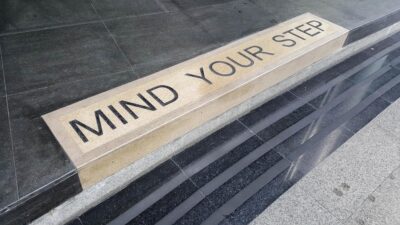
Slip and fall accidents can happen at any time. Someone can walk into a store, slip, fall, and suffer disabling injuries. If a slip and fall incident occurs, the property owner could be liable. Below, we’ll look at some of the leading types of slips, trips, and falls.
If you suffered injuries from a slip and fall, you have rights. You might be entitled to compensation for your damages. Atlanta slip and fall Injury Lawyer can help you with your case.
We’ll work to help you recover your injury costs. The property owner could be responsible for your medical bills, lost wages, and more. To learn more during a FREE consultation, call (404) 400-4000 or contact us online.
What Are the Different Types of Slips, Trips, and Falls?
Slip and fall accidents can happen in many ways. They also take place in various locations. Anyone can slip, fall, and suffer injuries at:
- Grocery stores
- Retail department stores
- Malls or shopping centers
- Parking lots
- Parks
- Movie theaters
- Private homes
- Business offices
Here are the most common ways people slip and fall.
Slippery Floors
Property owners and employees must ensure their floors are safe. That includes making sure there are not standing liquids. Water, bottled products, and other liquids might spill onto the floors. If a customer is not aware of wet floors, they can slip and fall.
If an employee is mopping the floor, they must put out a warning sign. If they don’t, the property owner can be liable for a slip and fall accident.
Slippery Materials
Some floors are more hazardous than others. Hardwood, stone, and concrete flooring are good examples. The smoothness of these materials can make them high-risk for slip and fall accidents.
Property owners should be careful to keep floors safe. They might need to use rugs or carpeting to decrease the slip risk. If an employee mops or waxes the floors, they should warn customers.
Fallen Merchandise
Store merchandise can fall into the aisles at any time. Owners and employees should be careful to:
- Clean up fallen items as they see them
- Check for dropped items regularly
- Remove any trash or debris that falls onto the floor
- Make sure large displays or other products are not blocking walkways
If a customer cannot easily see a fallen object, they might slip and fall. The store could be responsible for the injuries.
Poor Lighting
Dark hallways can make it hard for visitors to see hazards. The same goes for poorly-lit staircases. Property owners should be careful to have adequate lighting in public locations.
Snow, Ice, or Water
Customers will track in ice and snow from outside, presenting a potentially severe hazard to everyone on the property. The situation can be just as dangerous when the ice or snow melts.
Owners and employees should promptly clean up wet areas on the property. They should also spread salt on icy areas where people walk.
Broken or Torn Flooring
Torn or loose carpet or rugs can become slip and fall hazards. Any type of damage to a floor’s surface can cause customers to trip. Property owners must maintain floors to avoid these types of problems.
Cracked Sidewalks
Property owners are usually responsible for sidewalks and parking lots on their property. Cracks, uneven pavement, and sidewalk gaps can all cause slips, trips, and falls.
Landscape Hazards
Many different landscaping issues can cause slipping hazards. Examples include:
- Loose sand
- Small gravel
- Unfinished landscape projects
- Uneven surfaces
- Holes in the ground
Workers could also leave out dangerous equipment or tools. If the owner and workers are not careful, people can fall.
Potholes and Other Openings
Visitors can fall into or trip on holes in the ground. Property owners should keep potholes and other openings closed or filled. If they can’t close the openings, they should block off the area or leave warning signs.
Get the strong arm
Who Is Responsible for a Slip, Trip, or Fall?
If you slipped, tripped, or fell on someone else’s property, the owner might be responsible. All property owners or occupiers in Georgia have a duty of care. They must “exercise ordinary care” to keep their premises safe (Georgia Code Section 51-3-1).
If the owner or occupier fails in their duty, someone can suffer injuries. The property owner or business would be liable for the damages. You could seek compensation through an injury claim.
Keep in mind that you must also exercise ordinary care (Georgia Code Section 51-11-7). The owner might try to use that law against you. They might claim that:
- You were not careful enough.
- You caused your injuries.
- Your injuries did not happen on their property.
- You were not hurt as badly as you say.
Many slip and fall victims are surprised to learn they hold no fault in their accident. To know your legal rights, talk to a lawyer today.
We can help you with:
- Nordstrom slip and fall claims
- Jersey Mike’s slip and fall claims
- Long John Silver’s slip and fall claims
- Dillard’s slip and fall claims
- Dick’s Sporting Goods slip and fall claims
Our legal team also helps with slip and fall lawsuits against many other businesses.
Talk to a Slip and Fall Lawyer for Free About Your Accident
If you suffered injuries after a slip and fall, call John Foy & Associates. We will listen to your story and:
- Determine if you have a claim.
- Investigate your accident.
- Gather evidence of the owner’s liability.
- Calculate your damages.
- Fight for your rights.
Plus, we do not charge a fee unless we win your case. You don’t have to worry about any upfront costs. Contact us today to get a FREE, no-risk consultation.
To schedule your FREE consultation, call (404) 400-4000 or contact us online.
404-400-4000 or complete a Free Case Evaluation form
